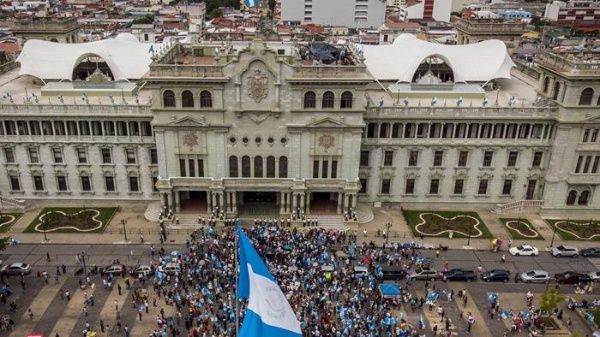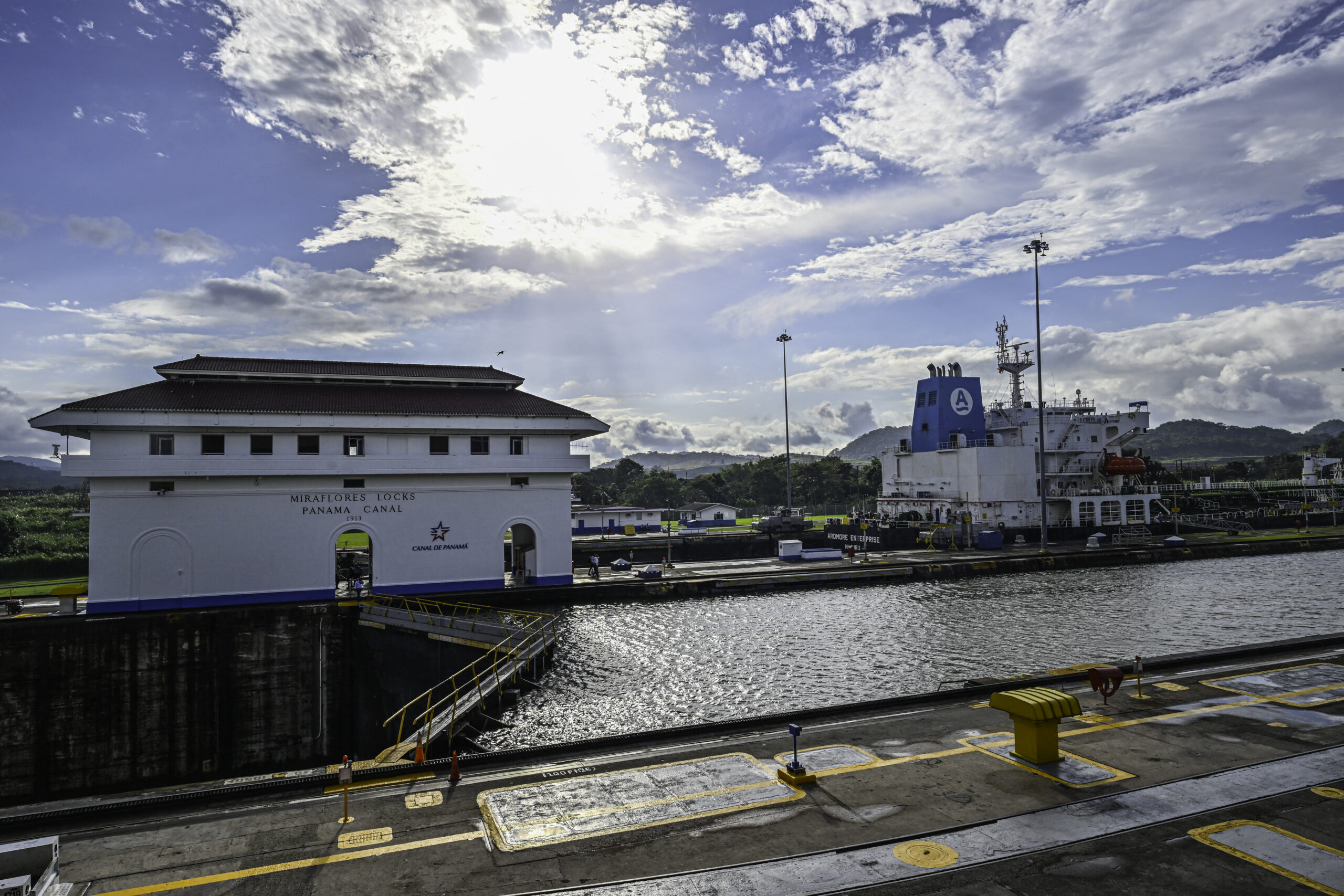Central America
Justice moves forward in cases against Guatemala’s president-elect

December 13 |
Both the Attorney General’s Office and a Guatemalan court judge advanced, by different paths, in separate investigations against the president-elect of that Central American country, Bernardo Arévalo.
The Attorney General’s Office delivered this Monday to the Supreme Electoral Tribunal (TSE) a report of the investigation on alleged anomalies for which it considers “null” the elections won by Arevalo last summer.
This followed Friday’s announcement by the Attorney General’s Office when it said it had detected irregularities in the vote count of the first round of June elections, although the president of the TSE, Blanca Alfaro, qualified that same day that the results of the elections “are unalterable” and that Arevalo must assume power on January 14.
But, the day before, “the Special Prosecutor’s Office against Impunity sent to the Magistrate President of the Supreme Electoral Tribunal, the criminal investigation developed by the Prosecutor’s Office, so that after the analysis, they can adopt the decision they consider convenient”, it was reported.
According to the Prosecutor’s Office, there were a series of anomalies in the final minutes of the closing of the scrutiny in the elections of president, vice-president, deputies, corporations and deputies to the Central American Parliament.
Meanwhile, a judge sentenced this Monday an electoral official to two and a half years in prison for the alleged case of false signatures used for the creation of the Semilla Movement, Arévalo de León’s party.
According to several experts and Arévalo de León himself, this case of the alleged false signatures is part of the attempts of the Public Prosecutor’s Office (Fiscalía) to prevent the president-elect from taking office on January 14.
The sentence, ordered by criminal judge Fredy Orellana, was against an unidentified official of the Supreme Electoral Tribunal, informed a statement from the Attorney General’s Office: the “sentenced person accepted his responsibility in the commission of the crimes”, and the sentence given is two years and six months in prison, said the Public Prosecutor’s Office, although in Guatemala prison sentences may be commutable if they are less than five years.
Arévalo de León, who enjoys immunity both for his current position as congressman and for the presidential election he won, is accused in the same case being handled by Judge Orellana.
Last September 1, Arévalo de León warned that the attorney general and head of the Public Ministry, Consuelo Porras Argueta, is carrying out a “coup d’état” against him in order to prevent his investiture in January.
Central America
Panama Canal Monitoring Trade as Middle East Conflict Disrupts Shipping

The Panama Canal Authority (ACP) said Monday it is closely monitoring global maritime trade developments following the conflict triggered by joint U.S. and Israeli strikes against Iran.
However, the ACP described it as “premature” to predict potential consequences for vessel traffic through the interoceanic waterway, which handles roughly 5% of global maritime trade.
“The Panama Canal continuously monitors the evolution of international maritime trade and the dynamics that may influence its flows,” the authority said in a statement. The canal’s main users are the United States and China, connecting primarily the U.S. East Coast with Asia, including South Korea and Japan.
The ACP emphasized that the canal “continues to operate safely, efficiently, and reliably,” providing uninterrupted service to the global maritime community.
Global Shipping Disruptions
The U.S.-Israeli military operation against Iran and Tehran’s retaliatory actions have disrupted global maritime traffic, particularly oil tanker routes.
Shipping giants Maersk and CMA CGM have suspended transits through the Strait of Hormuz as well as crossings via the Suez Canal, the key route linking the Mediterranean Sea and the Red Sea.
As a result, cargo vessels are now rerouting around Africa to reach Europe from the Middle East and Asia — a detour that adds several thousand kilometers and several days to voyages.
Central America
Washington Imposes Visa Ban on La Modelo Director Amid Crackdown in Nicaragua

The United States government announced Wednesday that it has imposed visa restrictions on Roberto Clemente Guevara Gómez, director of Nicaragua’s largest prison, La Modelo, for his involvement in actions that violate human rights.
In a statement, U.S. Secretary of State Marco Rubio said the measure is intended to promote accountability for abuses committed under what he described as the “Murillo-Ortega dictatorship” against political prisoners.
Rubio specified that Guevara Gómez was designated for participating in “a gross violation of the human rights of a political prisoner.” The sanction was issued under the 2024 Department of State, Foreign Operations, and Related Programs Appropriations Act, which bars the sanctioned individual — and potentially immediate family members — from entering the United States.
“United States demands the immediate and unconditional release of all political prisoners unjustly detained in Nicaragua,” the statement added.
Ongoing tensions between Washington and Managua
Washington rejected Nicaragua’s November 2021 elections, in which President Daniel Ortega and his wife, now co-president Rosario Murillo, were reelected while seven potential challengers were in prison.
Relations between the two countries remain tense amid expanding U.S. sanctions and increasing diplomatic pressure on the Nicaraguan government.
On January 10, marking Ortega’s 19 years in power, Nicaragua released “dozens of detainees,” including political prisoners. The move came one day after the U.S. Embassy in Managua stated that “more than 60 people” remain “unjustly detained or disappeared” in the Central American nation.
U.S. officials have continued to push for the “unconditional release” of political prisoners rather than selective or temporary releases.
Ortega, 80, governs alongside Murillo with consolidated authority, having strengthened executive power through constitutional reforms and security measures, while the opposition has been weakened by imprisonment, exile, and the revocation of citizenship and property rights.
Central America
Guatemala’s Attorney General Consuelo Porras Loses Bid for Constitutional Court Seat

Guatemala’s attorney general, Consuelo Porras, who has been sanctioned by the United States over corruption allegations, lost a key vote on Monday in which a public university selected two of the 10 magistrates for the country’s highest constitutional court. However, she could still seek a seat through another nominating body.
The election of five full magistrates and five alternates to the Corte de Constitucionalidad (CC) is taking place gradually over more than two months and is considered crucial in the ongoing struggle for control of Guatemala’s judiciary, which critics say has long been influenced by a political and economic elite accused of corruption.
According to results announced at a press conference, the governing council of the Universidad de San Carlos de Guatemala (USAC) rejected Porras, who had applied as either a full or alternate magistrate, and instead chose two candidates aligned with the university rector. The vote was held at a hotel in Antigua, about 35 kilometers from the capital.
Despite the setback, Porras — whose term as attorney general ends on May 16 — could still be nominated to the Constitutional Court by the Corte Suprema de Justicia, which appoints two magistrates. The remaining six are selected by the president, the bar association and Congress.
“It’s always a possibility,” the 72-year-old lawyer said days earlier when asked by reporters whether she would seek nomination through another institution if she lost the USAC vote.
Porras has been sanctioned by Washington and the European Union for allegedly attempting two years ago to block the inauguration of President Bernardo Arévalo and for pursuing legal actions against anti-corruption prosecutors, judges, journalists and social leaders since taking office in 2018.
The USAC vote was controversial because most members of the university’s governing council are serving beyond the expiration of their terms. Students, academics and social activists staged protests against Porras’ candidacy.
-

 International2 days ago
International2 days agoIran Reports 201 Dead, 747 Injured After U.S. and Israeli Strikes
-

 International5 days ago
International5 days agoCocaine Production Surges 34% in 2023 as Market Expands into Africa and Asia
-

 International4 days ago
International4 days agoTrump Floats “Friendly Takeover” of Cuba Amid Rising Tensions
-

 Sin categoría3 days ago
Sin categoría3 days agoTrump: ‘We Think It’s True’ Amid Claims Iran’s Supreme Leader Was Killed
-

 International3 days ago
International3 days agoSecurity Council to Hold Emergency Meeting on Middle East Crisis
-

 International2 days ago
International2 days agoPope Leo XIV Urges End to ‘Spiral of Violence’ in Middle East
-

 International5 days ago
International5 days agoFederal Judge Blocks Trump Policy Allowing Deportations to Third Countries
-

 International4 days ago
International4 days agoArgentina’s Senate Reviews Milei-Backed Labor Overhaul
-

 International17 hours ago
International17 hours agoBrazil’s Supreme Court Rejects Bolsonaro’s Bid for House Arrest
-

 International5 days ago
International5 days agoClinton Accuses Republican Committee of Using Epstein Case to Shield Trump
-

 International17 hours ago
International17 hours agoAnti-ICE Billboard Campaign Targets Immigration Spending in 31 U.S. Cities
-

 International17 hours ago
International17 hours agoTrump Warns of ‘Major Wave’ of Attacks as Iran Conflict Escalates
-

 International17 hours ago
International17 hours agoMexico Calls for Immediate Probe After National Dies in ICE Custody
-

 Central America17 hours ago
Central America17 hours agoPanama Canal Monitoring Trade as Middle East Conflict Disrupts Shipping
-

 International17 hours ago
International17 hours agoBolivia Orders Three Investigations Into Deadly Military Plane Crash








































































































